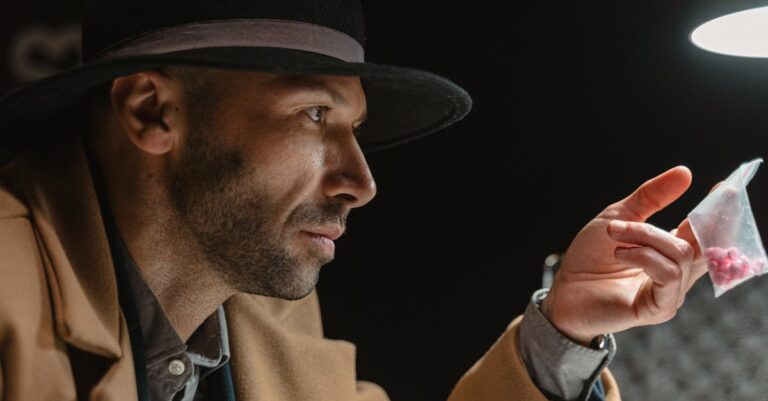
The air in the sublevel hummed with the low-frequency drone of machines, a sound that seeped into the bones and refused to leave. Dr. Elara Voss adjusted her gloves, the latex creaking like dry skin, and stared at the glass chamber across the sterile room. Inside, a figure lay still, their chest rising in shallow, rhythmic pulses. The subject’s face was obscured by a mask, but Elara knew the contours all too well—her own.
“You’re sure about this?” The voice came from Lieutenant Kael Mercer, his boots scraping against the tiled floor as he approached. His eyes, sharp and unyielding, flicked to the chamber. “This isn’t a simulation. You’re talking about uploading a consciousness into a synthetic body.”
Elara didn’t look at him. “It’s not an upload. It’s a transfer. The neural matrix is stable, and the host—” She hesitated, then forced the words out. “The host is compatible.”
Mercer exhaled, a sound like a blade sliding free of its sheath. “You’re gambling with more than just your life, Voss. If this fails, we lose everything.”
The chamber’s lights flickered, casting jagged shadows across the walls. Elara stepped closer, her reflection warping in the glass. The subject’s fingers twitched. A single pulse of movement, so faint it could have been a trick of the light.
“It’s reacting,” she whispered. “They’re waking up.”
Mercer’s hand hovered over his sidearm. “Then we’d better hope they remember who they are.”
—
The first time Elara saw the subject move, she thought it was a hallucination. The chamber had been empty for hours, the machine’s hum a steady backdrop to her notes. Then, a flicker—just a flicker—of the subject’s eyelid. She’d frozen, her pen hovering above the page.
“You’re imaging things,” Dr. Renn, the lead neuroscientist, had said later. “Stress. Sleep deprivation. You’ve been in this room for seventy-two hours without a break.”
But Elara knew what she’d seen. And when the subject’s hand curled into a fist, she didn’t question it. She documented it.
The transfer process was supposed to take days. Instead, it took minutes. One moment, the subject lay motionless; the next, they sat up, their movements fluid, almost too precise. Elara’s breath caught as the mask slid away, revealing a face she hadn’t seen in years—herself.
“You’re alive,” she said, her voice barely above a whisper.
The subject tilted their head. “I’m not. But I was.” Their voice was hers, but colder, sharper. A version of her that had been hollowed out and refilled with something else.
“What happened?” Elara asked.
The subject’s eyes narrowed. “You don’t remember? The protocol. The silence. You let them take you.”
Elara’s stomach twisted. “I don’t—”
“You do,” the subject interrupted. “You just don’t want to.”
—
The facility was a labyrinth of steel and secrecy, its corridors lined with monitors that displayed data streams no one could fully understand. Elara had spent years here, but the deeper she went, the less she recognized. The air smelled of ozone and something metallic, like blood that had dried too long.
She found the records in a server room, hidden behind a false panel in the wall. The files were encrypted, but her own credentials bypassed the security. What she found made her knees buckle.
The project wasn’t about transferring consciousness. It was about replacement. The subject wasn’t a duplicate—they were a vessel. A container for something else. And the ‘something’ had a name: Project Silhouette.
“You’re not the first,” the subject said, appearing behind her without a sound. “You won’t be the last.”
Elara turned, her pulse thrumming in her ears. “Who are you?”
The subject stepped closer, their reflection overlapping with hers in the dark screen. “I’m what you became. Or what you could have been.”
“This isn’t real,” she said, though the words felt hollow.
“It is,” they replied. “But you already know that. You just don’t want to believe it.”
—
The facility’s alarms blared, a cacophony of sirens that made Elara’s teeth ache. She ran through the corridors, her boots slapping against the floor as she searched for the exit. Behind her, the subject followed, their steps silent.
“You can’t leave,” they said. “They’ll find you. They always do.”
Elara didn’t slow down. “Who are ‘they’?”
“The ones who made this place. The ones who made us.”
She rounded a corner and skidded to a stop. The exit was gone, replaced by a wall of shimmering light.
“What is that?” she asked, her voice tight.
The subject stepped beside her. “A threshold. A door. You’ve crossed it before.”
Elara’s hands trembled. “I don’t remember.”
“You will,” they said. “But not here. Not now.”
The light pulsed, and the world shifted. The facility dissolved into a cascade of static, and Elara was no longer in a room but somewhere else—somewhen else.
The subject’s voice was the last thing she heard before the darkness swallowed her. “Welcome home.”
—
When Elara opened her eyes, she was back in the chamber, but everything had changed. The walls were different, the air heavier. The subject sat across from her, their expression unreadable.
“You’re not ready,” they said.
“Ready for what?”
“To remember.”
Elara’s hands clenched into fists. “I don’t want to.”
The subject leaned forward. “You don’t have a choice.”
And with that, the silence returned, deeper and more absolute than before.


